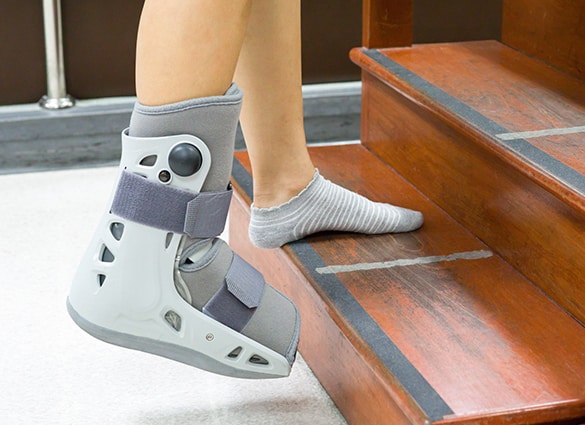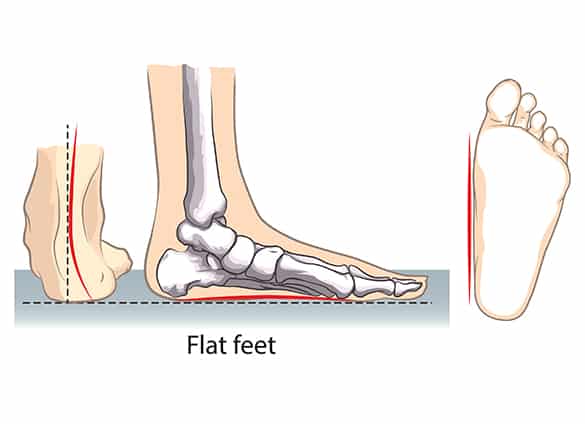
What is a Tarsal Coalition?
A tarsal coalition is a congenital condition (present at birth) that occurs when the bones of the foot fail to separate during foetal development.
A tarsal coalition is an abnormal connection between two bones in the foot that are not normally connected.
The tarsal bones are the seven bones that make up the heel and the midfoot. A tarsal coalition can affect any of the tarsal bones.
The two most common types are the calcaneonavicular coalition and the talocalcaneal coalition. The calcaneonavicular coalition describes a failure of separation between the calcaneus and the navicular, while the talocalcaneal coalition describes a failure of separation between the calcaneus and the talus. The coalition or “bar” between the two bones can be made of bone, cartilage, or fibrous tissue.
The coalition often progresses from fibrous to cartilage to bone, becoming more stiff with age. As a result, children do not usually present with painful symptoms until 10-16 years of age, when the foot bones begin to mature.
What causes a Tarsal Coalition?
During pregnancy, the foetus undergoes remarkable development and change. In the skeleton, these changes include the separation of each individual bone in the body from one mass of bone material. In some cases, this bone separation process is not completed. A tarsal coalition occurs when this type of failure to separate occurs in the tarsal bones of the foot.
Tarsal coalition is genetic, this means that it tends to run in families. In addition it is an autosomal dominant genetic condition, so if you have one parent with the disorder, it is highly likely that you will inherit the disorder.
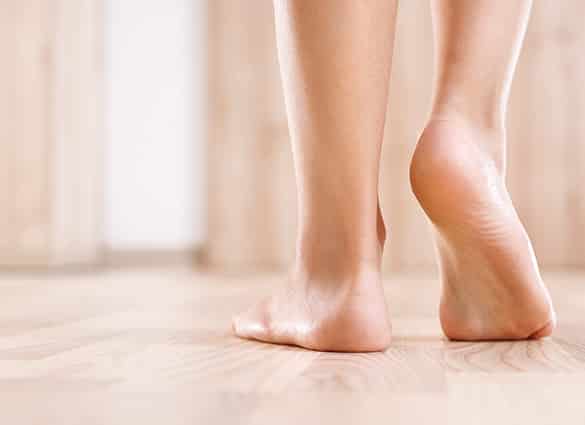
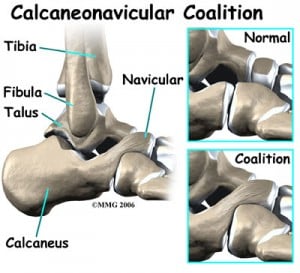
Why is Tarsal Coalition a problem?
Tarsal coalition often becomes a problem because it affects the way the joints of the foot move as we walk and run. The foot is a complex structure and to function correctly, all of the joints must move in relationship to each other. If the movement between two bones is abnormal, the motion in other surrounding joints is disrupted. The abnormal motion increases the stress on other foot joints and over time, this leads to wear and tear on those joints and ultimately, pain.
What are the symptoms of Tarsal Coalition?
It is important to note that not all Tarsal Coalitions cause symptoms and many people can have a Tarsal Coalition and never know they have it.
The most common symptom-related to a tarsal coalition is pain and a stiff, flat foot. Children often present after an ankle sprain that just never seems to get better. The most common symptoms of tarsal coalition are:
- Pain (ranging from mild to severe) around the ankle and foot when standing, walking or running
- Stiff, flat foot (in one or both feet)
- Walking with a limp
- Awkward or an unbalanced gait
- Tired or easily fatigued legs
- Muscle spasms in the outer leg, causing the foot to turn outward
- Difficulties keeping up with their peers in school sports
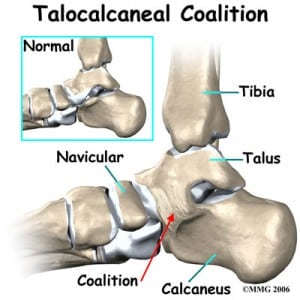
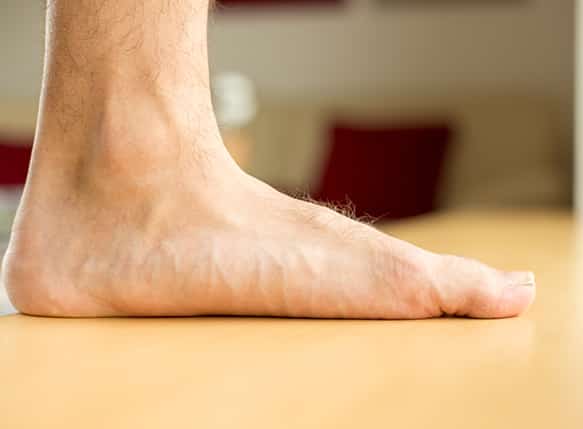
How is a Tarsal Coalition diagnosed?
A thorough history and physical examination is completed to help make the diagnosis of a tarsal coalition. On physical examination of the child, your Podiatrist will assess the range of movement in all of the joints in the foot. When assessing range of movement, we look for any restriction of motion, stiffness and any areas of tenderness in the foot. A gait analysis is performed to look for any abnormalities in the way the feet move during gait. A biomechanical assessment is completed to assess the child’s foot posture weight bearing and non-weight bearing. Leg and foot muscle strength testing is also assessed.
If a tarsal coalition is suspected after completing the physical examination then plain x-rays will be ordered. Plain x-rays do not always clearly show a tarsal coalition and a CT scan, or in some cases, an MRI scan may also be necessary.
How is a Tarsal Coalition Treated?
A Tarsal coalition can be treated with:
- Activity Modification: If your child has a painful tarsal coalition, some activity modification may be required until the symptoms are controlled. Activities requiring lots of running, jumping or changes of direction can aggravate foot and ankle pain and alternative forms of exercise or sport may need to be considered.
- Rest and Partial Immobilisation: If your child is experiencing foot or ankle pain associated with a tarsal coalition, treatment may involve placing the foot in a walking cast / immobilization boot for 2-3 weeks. The immobilization boot allows the painful joints to rest and the inflammation to settle, providing some pain relief. Once the pain has settled then treatment revolves around supportive footwear and the everyday use of custom orthotics.
- Footwear: Ensure you choose supportive, stable shoes for both school and for sports activities. If the shoe is too flexible and has no arch reinforcement the foot will not be adequately supported. The shoes must have a good shock absorbing midsole, made from EVA foam (rather than a rubber cup). The shoes should also be made on a straight last.
- Custom-Made Foot Orthotics: Custom-made foot orthotics are prescribed by Podiatrists and made from a 3-dimensional scan of your feet. Custom orthotics will conform to the exact contours of the foot, providing arch support, stabilizing the tarsal bones, reducing abnormal motion and reducing pain with walking. Custom foot orthotics may also protect the other joints within the foot, reducing the risk of osteoarthritis developing in the future. Many children with painful tarsal coalitions experience good pain relief with the combination of rest, supportive footwear and custom foot orthotics.
- Surgery: In a small percentage of patients non-surgical treatments are not successful in relieving pain. For these children, surgical excision of the connection between the two bones may be required. A referral to a foot and ankle surgeon may be required to discuss surgical correction of the tarsal coalition and the flat foot deformity.
